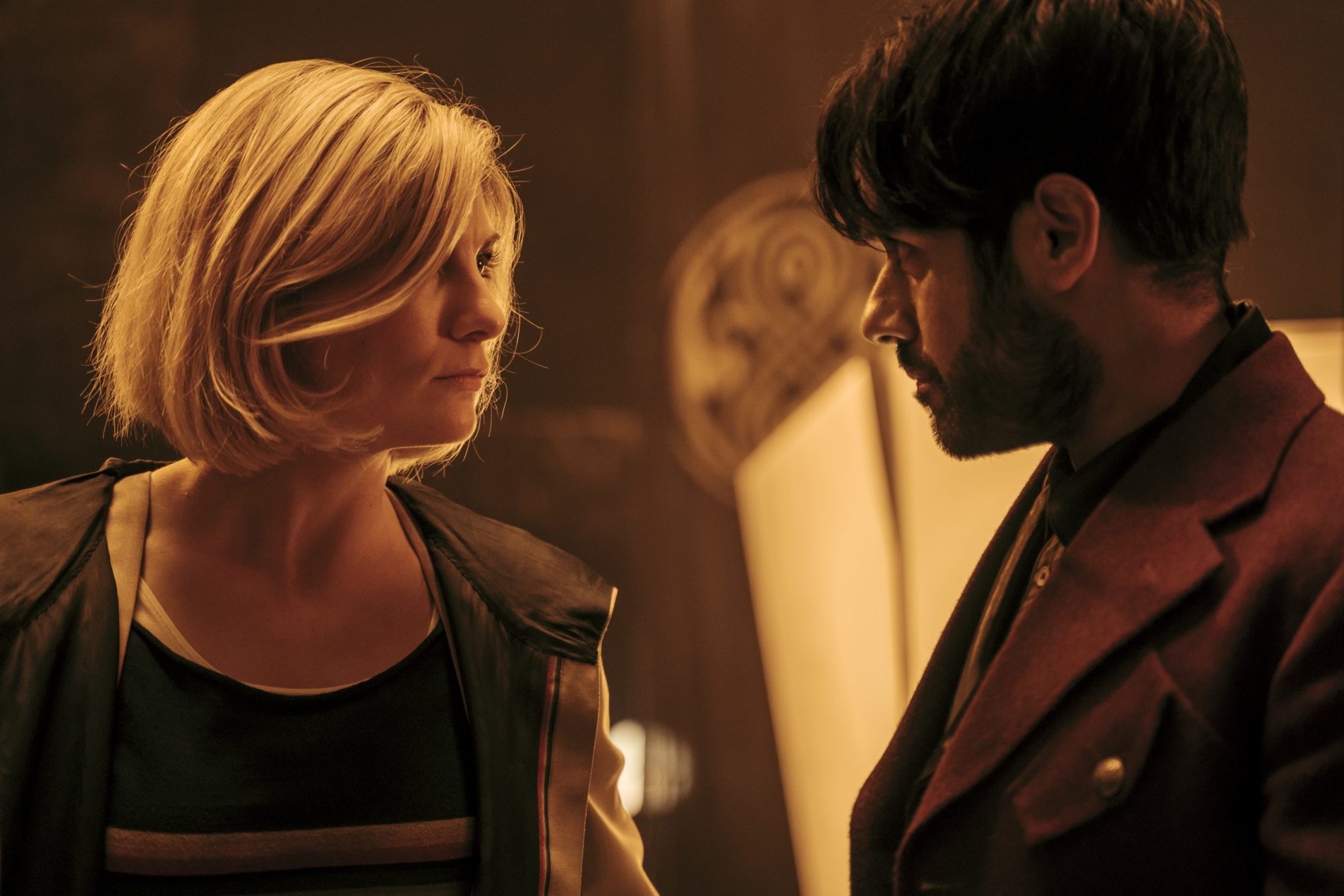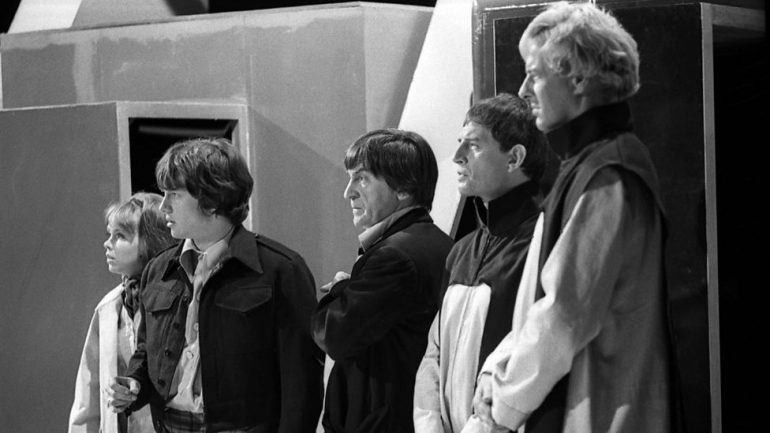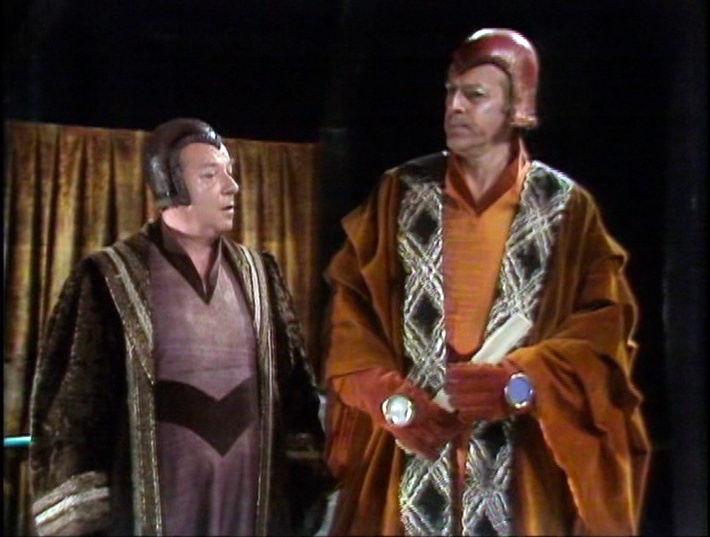Doctor Who fandom has been rocked many times over the years – from the Doctor’s revelation that he was a Time Lord, to the unveiling of the Timeless Child. What have been some of the show’s most earth-shattering moments?

Doctor Who fandom sometimes gets criticised for its resistance to change. Arguably, this isn’t unique to Doctor Who; it’s true for most franchises. People are fans of things because they hold them close to their hearts. It can be painful when something people love is changed irreversibly. These days, it can overspill into furious Tweets, or the YouTube comments section!
I’m not sure how Doctor Who fandom responded when the Doctor revealed in episode 10 of ‘The War Games’ that he was actually a Time Lord, as I wasn’t alive (and neither was Twitter.) But it was possibly the biggest revelation in the show’s history to date, unless you count the First Doctor’s regeneration. In a single moment, the Doctor gave away a huge chunk of his identity, and personal history. Viewers got to see where he came from, and other members of his race. They found out how he acquired the TARDIS. In Doctor Who terms, this was mega.
Today, Doctor Who fandom accepts the Doctor’s identity as part of the show’s lore, but it was a massive revelation at the time. Until that point, the Doctor had simply been a mysterious traveller in time and space, with a machine he couldn’t quite control. Little was known about him except that he was alien, and that he had the ability to renew his body.

And after ‘The War Games,’ the Time Lords were elevated to an almost god-like status, draped in grand regalia and able to manipulate events from afar, seemingly at a whim. For many years, this was the established reality of the Doctor’s people, and was firmly established in Doctor Who fandom.
And whilst Robert Holmes didn’t exactly dispense with this backstory in ‘The Deadly Assassin,’ he did change the rules considerably. In the 1976 adventure, Holmes decided that he wanted to show the Time Lords for what they really were. He disliked their grandness and pomposity; he wanted to expose their rotten core, and in ‘The Deadly Assassin’ he depicted them as a bunch of squabbling, corrupt politicians. Some were even a bit doddering and incompetent. This was a far-cry from the deified beings who exiled the Doctor in ‘The War Games.’
And according to my research (namely Wikipedia) David J. Howe and Stephen James Walker reported in The Television Companion that, at the time of broadcast, some members of Doctor Who fandom disliked the portrayal of the Time Lords, finding it a contradiction of the small details that had previously been dropped about the Doctor’s home planet. It certainly turned the Doctor’s race on its head, and changed the notion of what it meant to be a Time Lord. The Doctor was even given a regeneration limit in this story; before ‘The Deadly Assassin,’ nobody knew how many times he could change his body.

And then there was the definition of what it meant to be the Doctor. When Tom Baker was cast in the role in 1974, he was by far the youngest actor ever to take up the mantle. And when Peter Davison was cast seven years later, he was younger still – by a considerable margin. This was very new, and very different; for many people in Doctor Who fandom, the Doctor was meant to be an older man – a censorious, grandfather-like figure with gravitas and authority. Peter Davison, on the other hand, was a dashing, youthful sportsman in a cricket sweater – quite a departure from the frills of Jon Pertwee.
Similarly, there was a backlash in Doctor Who fandom when Matt Smith was cast as the Doctor. He was even younger than Davison, and at 26 he was the youngest actor ever to have played the part. For those people who had come to terms with the Fifth Doctor, this was simply too much. How much younger were the Doctors going to get? How long would it be before a child was cast in the role? Would the very nature of Doctor Who be changed beyond all recognition?
These were understandable questions for Doctor Who fandom to ask. Because, arguably, it is not always ageist or sexist if fans are upset by a major change. As mentioned previously, people who are fans of things tend to hold them close to their hearts, even to the point of incorporating them into their psyche. Psychologists call this cathexis, which is defined as “the process of allocation of mental or emotional energy to a person, object, or idea,” (thanks again, Wikipedia.) If the ‘cathected’ object is altered in a measurable way, there is likely to be pain. Some people may accept this pain more quickly than others. Some may never accept it and fight it with all their strength.
Of course, ageist, sexist, racist and homophobic people will always, sadly, exist, and a lack of acceptance on the part of those people is a different thing altogether. But it wouldn’t be accurate to say that everyone who resisted the notion of, say, the arrival of the first female Doctor falls into some or all of these categories. For many people in Doctor Who fandom, the object that they had incorporated into their psyche was being changed in a dramatic way. Not everyone was going to welcome such a notion – the same way that Starbucks fans might have objections if the brand dispensed with coffee and started selling melted cheese, or if Harry Potter revealed that he was never really a wizard. You get the idea.
So should Doctor Who fandom embrace every earth-shattering revelation with a broad grin and open arms? That’s a matter of opinion. Certainly, it would be a surprise if people did; fans often cry out in pain because they love the show, not because they hate it. Seeing it change beyond recognition, perhaps in a single episode, won’t make everyone chuckle with glee.
There is, however, a lot to be said for treating one another with respect, regardless of opposing views.

Pandorica Opens scarf – order now from the Lovarzi shop!


I’ve personally never liked the introduction of the War Doctor. I respect John Hurt as an actor, but the War Doctor still niggles me. However I have never aired my dislike on the official Dr Who Facebook page, simply because I respect that others do like the idea of the War Doctor and all that he stands for.
Yes I’m passionate about the show, sometimes people think if you don’t complain you don’t care about Doctor Who enough, but that’s not the case at all. I just know that the show isn’t about me, it’s there to entertain me but it isn’t pandering to my likes and dislikes – if it drifts occasionally from something that I hold dear I just bite my lip, find something else to enjoy and wait. Eventually Dr Who will give me something I do enjoy again. It always does.
I love Jodie as the Doctor. Yes I’m worried about who will replace her. But I’ve been through this before so I’ll cope. And I can always revisit past Doctors if I don’t like the next incarnation. Nothing is ever ruined. It’s about change and patience.
And humility. That doesn’t come naturally to me, but I’m learning. Like the Doctor, I can change. I am changing.
I think that’s a great attitude to have, Alwyn!